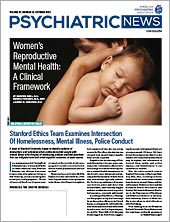Daniel Moynihan, assistant secretary in the Department of Labor during the Lyndon B. Johnson administration, wrote a report in 1965 titled “The Negro Family: The Case for National Action,” better known as the Moynihan Report. According to an article in the June 24 Boston Review by Stephen Steinberg, Ph.D., distinguished emeritus professor at Queens College and the Graduate Center of the City University of New York, the Moynihan Report was written during the critical period when President Johnson planned to progress into “the next and more profound stage of the battle for civil rights” after the passage of the Civil Rights Act of 1964 and Voting Rights Act of 1965. Those two pieces of legislation desegregated American society and granted Blacks both civil and voting rights. Some observers have viewed the Moynihan Report as claiming that dysfunctional family structure and culture are the roots of Black poverty. We suggest that racist policies and institutional racism are responsible for inequities in the distribution of wealth and other socioeconomic commodities. As a result, these pervasive racist policies continue to have adverse effects on Black mental health.
The Moynihan Report focuses on the “crumbling family structure and urban ghetto culture” in Black communities as fundamental causal factors of economic and health care disparities. While family structure can affect the economic status of Black households, it is only one of several social and political factors with such influence. Moynihan vaguely alludes to these factors by noting that “three centuries of injustice have brought about deep-seated structural distortions in the life of the Negro American.” He then states that “a national effort towards the problem of Negro Americans must be directed towards the question of family structure.” Thus, the report oversimplifies this explanation and shifts the focus away from continued racist policies and cultural practices, which were chiefly responsible for contributing to inadequate Black employment.
The Moynihan Report’s findings are undermined by the flawed argument that the “tangle of pathologies” are direct consequences of dysfunctional family structure, rather than a contributing factor to Black poverty. He concludes the report by stating that the U.S. federal government can attempt to solve this problem by creating programs “enhancing the stability and resources of the Negro American family.” According to an article in the June 30, 2015, In These Times by Daniel Geary, Ph.D., M.A., the ambiguous language used in the Moynihan Report allows its use by some to justify racism and its resulting economic inequalities, leading to damaging consequences. Geary is the Mark Pigott Associate Professor of U.S. History at Trinity College Dublin.
The Moynihan Report is relevant today because of the continued presence of unresolved sociopolitical and economic issues mentioned therein. These matters continue to promote racism via racist policies that result in racial and health care disparities for Black people. Policies that perpetuate racial violence result in mistrust of the legal, political, and health care systems, thus leading to reduced access to mental health care. According to an article by Tahmi Perzichilli, M.S., L.P.C.C., posted May 7, 2020, in Counseling Today, the pervasive fear and mistrust of the health care system arise from historical reasons including the creation of “drapetomania” as a treatable mental illness that caused enslaved Blacks to want freedom, deinstitutionalization, use of the criminal justice system to control Blacks, and scientific racism. The unresolved sociopolitical and economic issues discussed in the Moynihan Report can be addressed through the enactment of anti-racist policies in every sphere of the American experience. Anti-racist policies are necessary to improve the overall well-being of Blacks as well as their access to mental health care. ■

